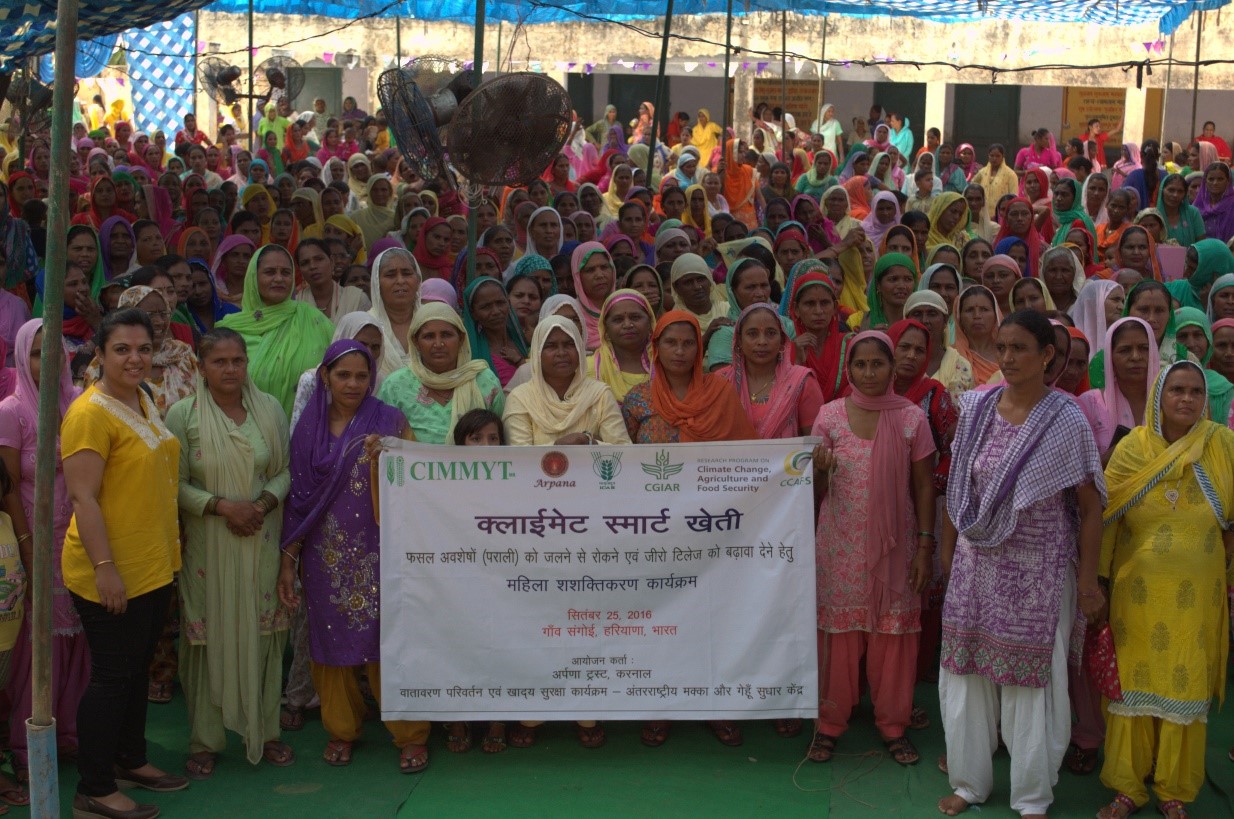
HARYANA, India (CIMMYT) — In the intensively cropped region of northwest India, poor management practices – especially residue burning after the rice season – often results in environmental degradation, severely affecting soil and human health. Residue burning is a major issue not only for agriculture, but for society as a whole. It cannot be dealt with in isolation and technology alone is not sufficient to address this challenge.
Arpana Services, a leading NGO in Haryana involved in promoting micro-enterprise programs by motivating women’s self-help groups, is working together with the International Maize and Wheat Improvement Center (CIMMYT) to generate awareness among women about climate-smart practices. In view of the forthcoming wheat sowing season, two field days aimed at discouraging residue burning were held by the CGIAR Research Program on Climate Change, Agriculture and Food Security (CCAFS) on 18 and 25 September 2016 in the Taprana and Sangoi villages of Haryana, India. The events brought together around 2,000 women from villages across the state.Aiming to foster climate-smart agriculture, the events promoted zero-tillage wheat and highlighted the adverse effects that residue burning has on soil physiochemical and biological properties. Demonstrations showed how the Happy Seeder and other zero-tillage machines reduce production costs, save water and increase yields. The field days also focused on reducing soil degradation and human health hazards by improving soil nutrient content and decreasing hazardous gas emissions. Citing the success of 27 climate-smart villages across Haryana, H.S. Jat, CIMMYT scientist, stressed the need to conserve natural resources and develop climate-resilient cropping systems.
Another part of the collaboration involves ensuring women farmers are financially independent. For example, Aruna Dayal, director of Arpana Services, stated that working together with CIMMYT will provide innovative solutions to women farmers who need to repay loans, while diversifying income and promoting savings. At the end of the field days, the highly motivated women took an oath not to burn crop residues on their fields and to educate other fellow farmers about the harm burning can do.

 Capacity development
Capacity development 
